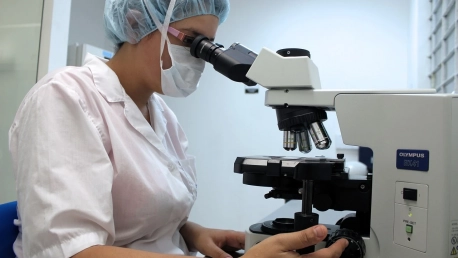Despite tremendous advancements in medical science, drug discovery remains a daunting challenge, particularly when it comes to illnesses involving complex protein interactions. Conventional drug development strategies fall short when faced with the vast network of protein-protein interactions (PPIs) that play pivotal roles in nearly every cellular process. However, in a landmark study from the University of Birmingham, alongside partners from the Universities of Bristol and Leeds, a breakthrough method has been identified that could significantly modify and improve how drugs are created. This research hinges on a seemingly minor, yet profound alteration to peptide backbones, which forms the heart of this revolutionary approach.
Unlocking the Drug Discovery Potential
Proteins are the building blocks of life, and the interactions between them, termed PPIs, are crucial for myriad biological functions, from enzyme regulation to the unfolding of the cellular lifecycle. For years, the pursuit of targeting these intricate interactions has been a pharmaceutical puzzle due to their elaborate and expansive binding surfaces. Unlike enzymes such as proteases and kinases, which boast well-defined pockets amenable to the designs of small inhibitor molecules, PPIs present a more difficult landscape for drug targeting. Often too vast and complex, the traditional drug discovery models struggle to grapple with them—until now.The study revealed that by tweaking the peptide backbone—particularly in areas where the formation of β-strand structures is key—enhanced binding to the target molecules can be achieved. These β-strands are crucial components of proteins’ secondary structures, dictating the 3D form essential to function. Described in the prestigious journal Chemical Science, the research demonstrates how modifying the peptides can lead to tighter, more efficient binding. This not only signifies a breakthrough in understanding peptide interaction with β-strands but also propels drug discovery into a realm where once-unreachable PPI targets become accessible.
Paving the Way for New Therapies
Despite remarkable progress in medical science, creating new drugs is still remarkably tough, especially for diseases stemming from intricate protein behaviors. Traditional drug-making methods often can’t handle the complex web of protein-protein interactions (PPIs) crucial to cellular functions. Yet, a pioneering study by the University of Birmingham, with collaborators from the Universities of Bristol and Leeds, has marked a significant leap forward in drug development. This innovative research centers on a subtle but impactful tweak to peptide structures, providing the core of this transformative drug creation approach. Such fine-tuning could drastically change the pharmaceutical landscape, offering a new template for developing treatments that could interact more effectively within the body’s dense network of proteins. It’s a watershed moment that has the potential to streamline how medicinal solutions are formulated in the future.









